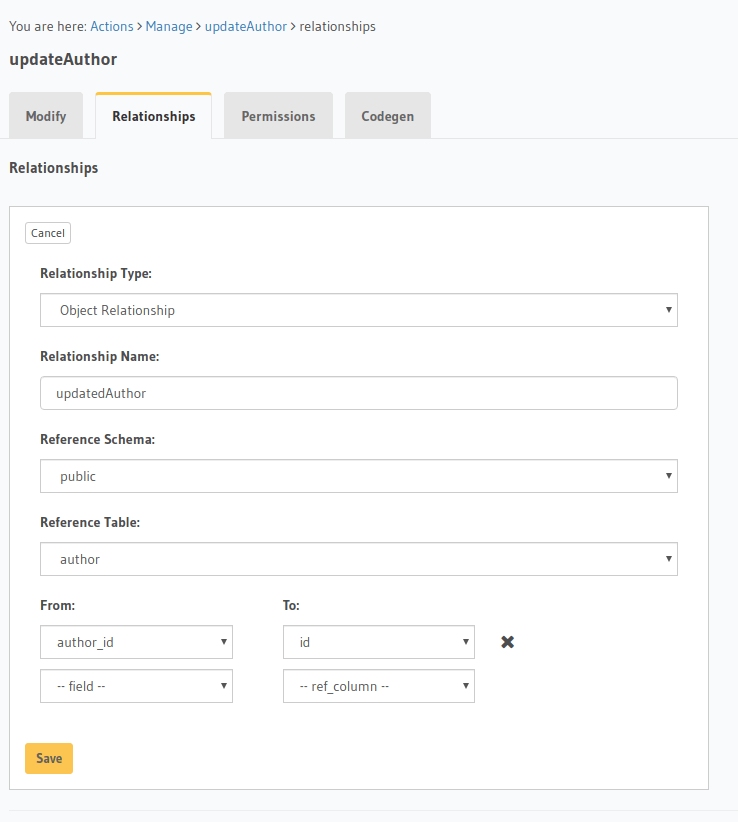Reusing existing types with actions¶
Table of contents
Use case¶
Actions are a way to extend your GraphQL schema with custom queries or mutations. It is quite a typical case that an action’s response is actually related to existing objects in the schema and the action needs to be connected with the rest of the graph.
For example, a custom insertAuthor action will be
related to the author object in the schema. Hence, we would want to be able
to get information about the author from the graph as a response of the
insertAuthor mutation.
Using action output type’s relationships¶
Actions can be connected to the rest of the graph by setting up relationships on its return output type.
This allows complex responses to be returned as an action’s response traversing the graph via the output type’s relationships.
For example, given the action:
type Mutation {
updateAuthor (
id: Int!
name: String!
): UpdateAuthorOutput
}
type UpdateAuthorOutput {
author_id : Int!
}
We can create an object relationship called updatedAuthor between the
UpdateAuthorOutput object type and the author table using the
UpdateAuthorOutput.author_id and author.id fields.
The object type will now be modified as:
type UpdateAuthorOutput {
author_id : Int!
updatedAuthor: author
}
Now we can make a mutation request with a complex response such as:
mutation updateAuthorAndGetArticles($id: Int, $name: String) {
updateAuthor(id: $id, name: $name) {
author_id
updatedAuthor {
id
name
articles {
id
title
}
}
}
}
See more details at custom object type relationships
Creating relationships for custom object types¶
You can create relationships for custom output types by:
Head to the Actions -> [action-name] -> Relationships tab in the
console for the action returning the output type.
Set the output type relationship as shown below:

Hit Save to create the relationship.
Go to metadata/actions.yaml in the Hasura project directory.
Update the definition of the UpdateAuthorOutput object type as:
- custom_types
- objects
- name: UpdateAuthorOutput
relationships:
- name: updatedAuthor
type: object
remote_table:
schema: public
name: author
field_mapping:
author_id: id
Save the changes and run hasura metadata apply to create the relationship.
